How Return-to-Office Trends Are Reshaping Office Design
Traditional office work has undergone significant transformations in recent years, leading to a widespread shift toward remote and hybrid setups.
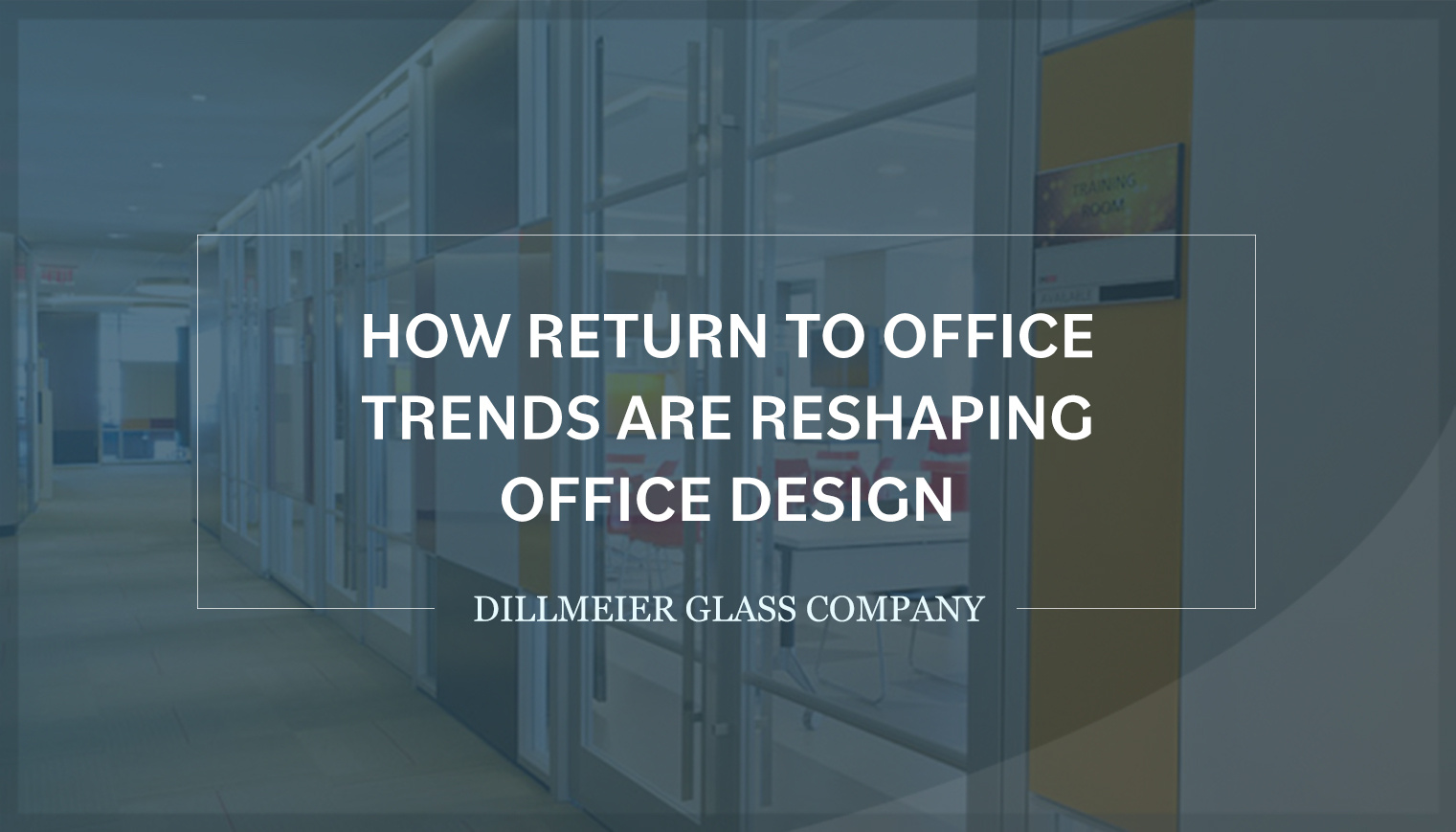
Traditional office work has undergone significant transformations in recent years, leading to a widespread shift toward remote and hybrid setups.
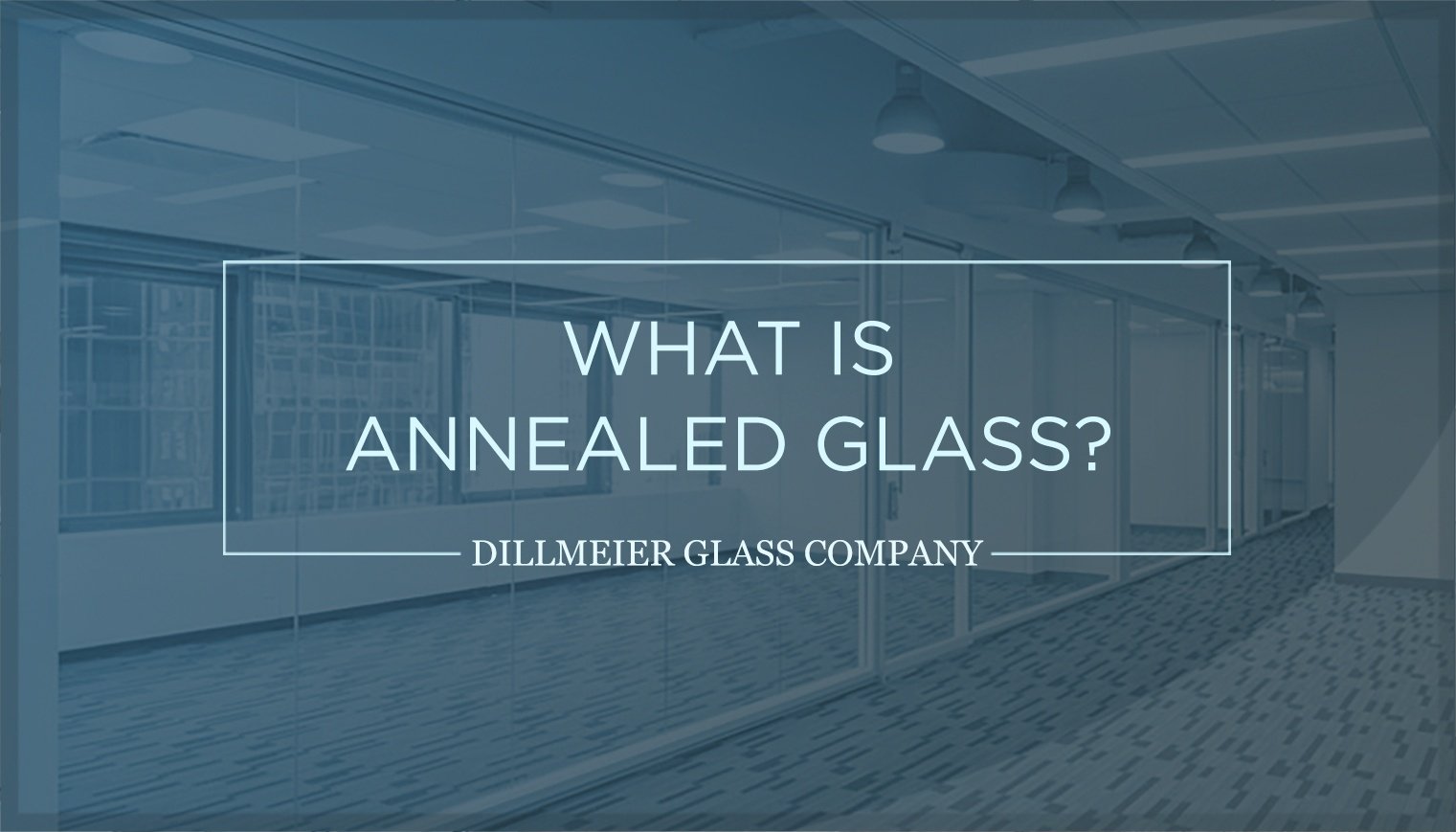
Editor’s Note: This blog was originally published in March 2018 and has been revised to reflect industry updates.
Glass is a major design component utilized in both commercial and residential construction projects—and for very good reasons. From its beauty to its versatility to its practicality, glass can serve a wide range of functions. Many may not realize, however, all the various treatments it can undergo to maximize its customizable properties prior to installation.
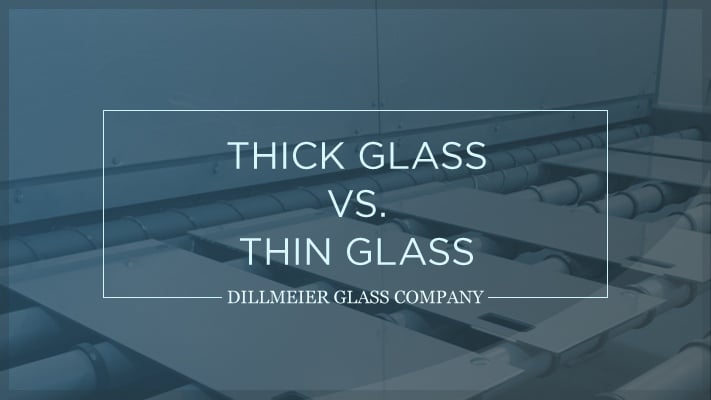
Editor’s Note: This blog was originally published in October 2016 and has been revised to reflect industry updates.
When ordering custom glass products, one of the most frequently asked questions is: What type of thickness are you seeking? While it might seem thicker glass is superior the answer is actually dependent on the specific application, use case, and finished product.
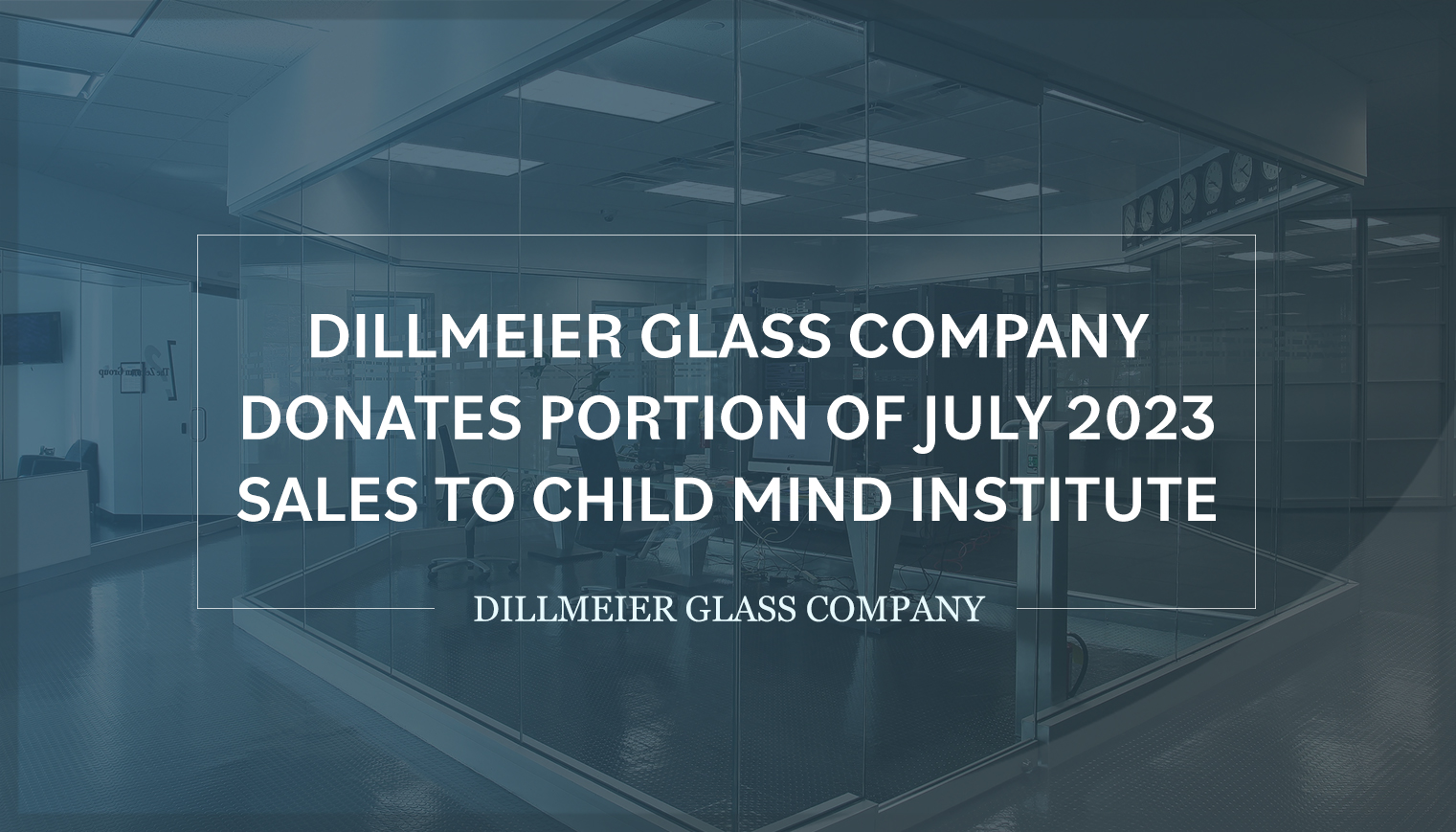
Van Buren, Ark. — August 28, 2023 — Dillmeier Glass Company, a fourth-generation, full-service commercial interior glass fabricator, is proud to announce its philanthropic initiative supporting childhood and adolescent mental health and well-being. To demonstrate its commitment to these critical initiatives, the glass fabricator donated $33,000 of its July 2023 sales to the Child Mind Institute, a New York City-based nonprofit transforming the lives of children and families struggling with mental health and learning disabilities.
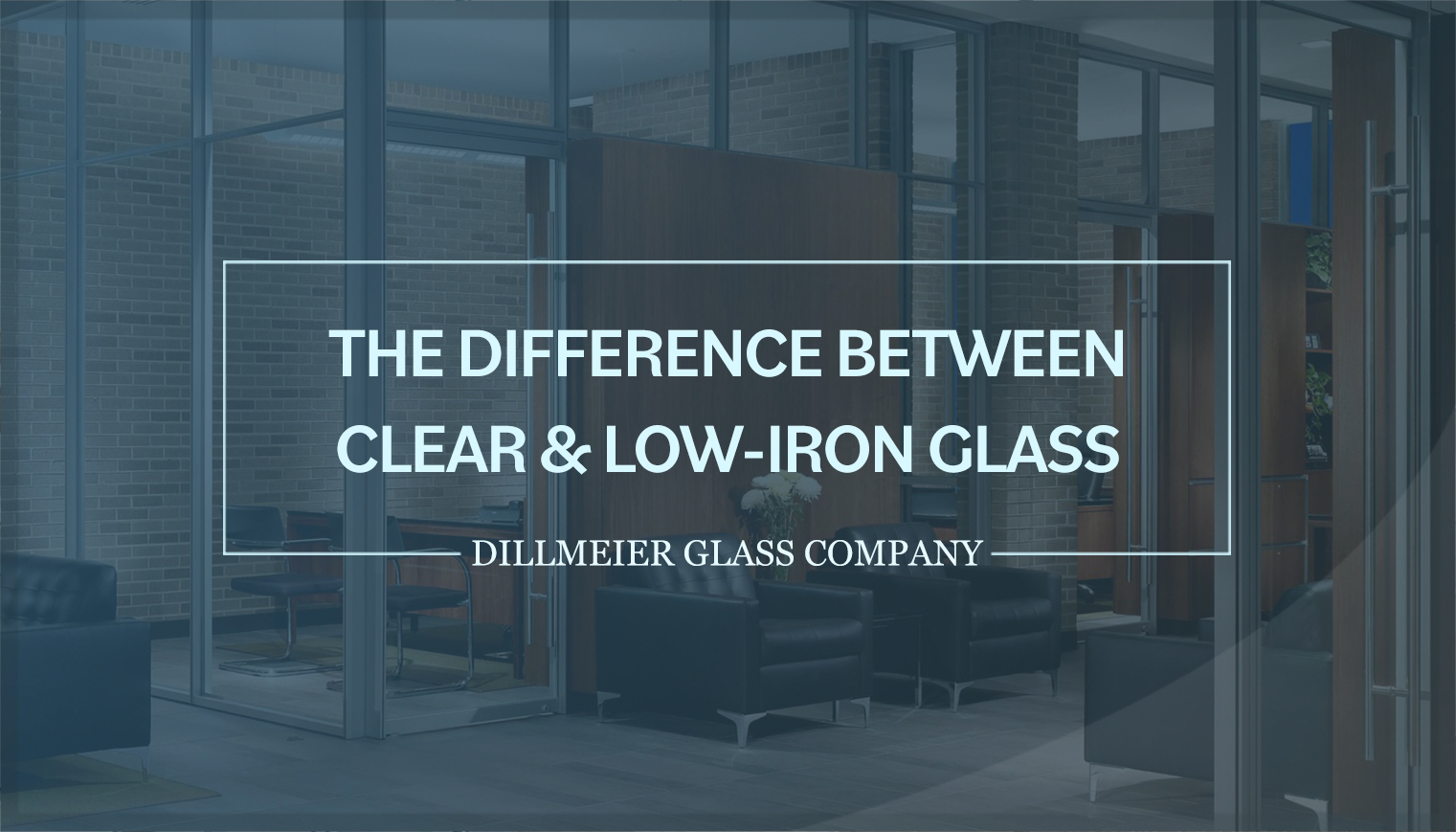
Editor’s Note: This blog post was originally published in December 2016 and has been revised to reflect industry updates.
You might think all glass is made the same. Yes, glass is available in different shades and shapes, but its actual composition cannot be altered, right?
This couldn’t be further from the truth.
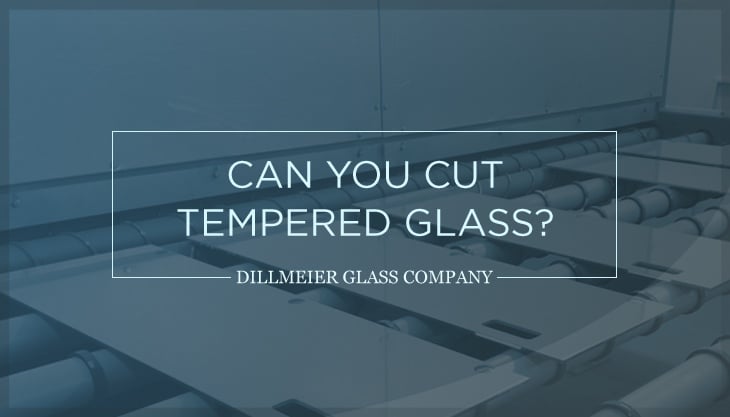
Editor’s Note: This blog post was originally published in February 2017 and has been revised to reflect industry updates.
Tempered or toughened glass is one of the most commonly used materials for commercial interiors—whether in a museum, retail store, office, restaurant, or other public spaces. Frequent applications include fixtures, doors, shelves, partitions, and table tops, just to name a few. However, you won't be able to cut glass once the tempering process is complete.
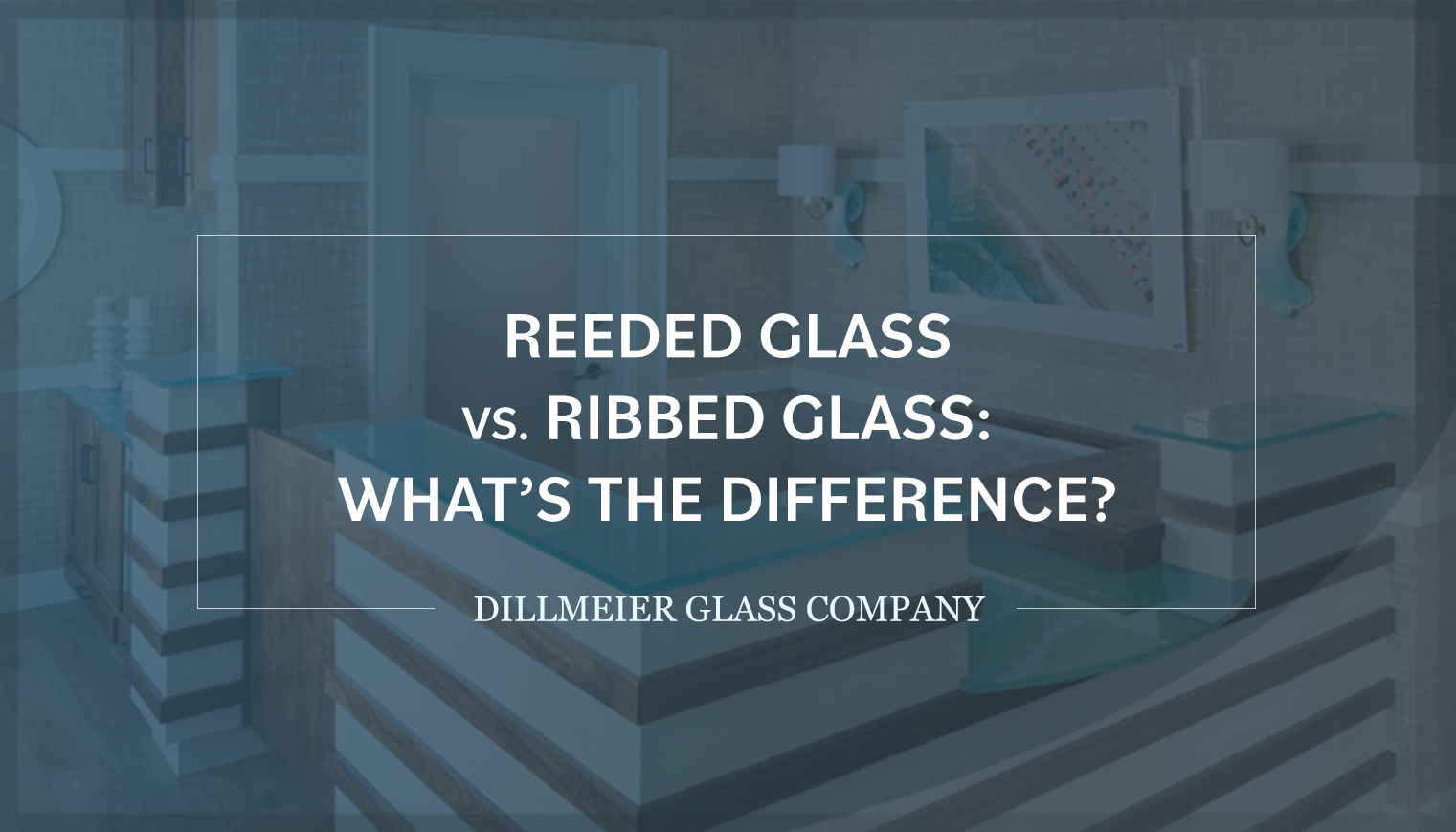
Editor’s Note: This blog post was originally published in March 2022 and has been revised to reflect industry updates.
If your project requires subtle hints of decorative elements while still promoting interior natural light, both ribbed glass and reeded glass are appropriate. Differentiated through thickness and groove levels, reeded glass provides a hollowed-out, inward look, while ribbed or “fluted” glass boasts a curve-like, outward appearance.
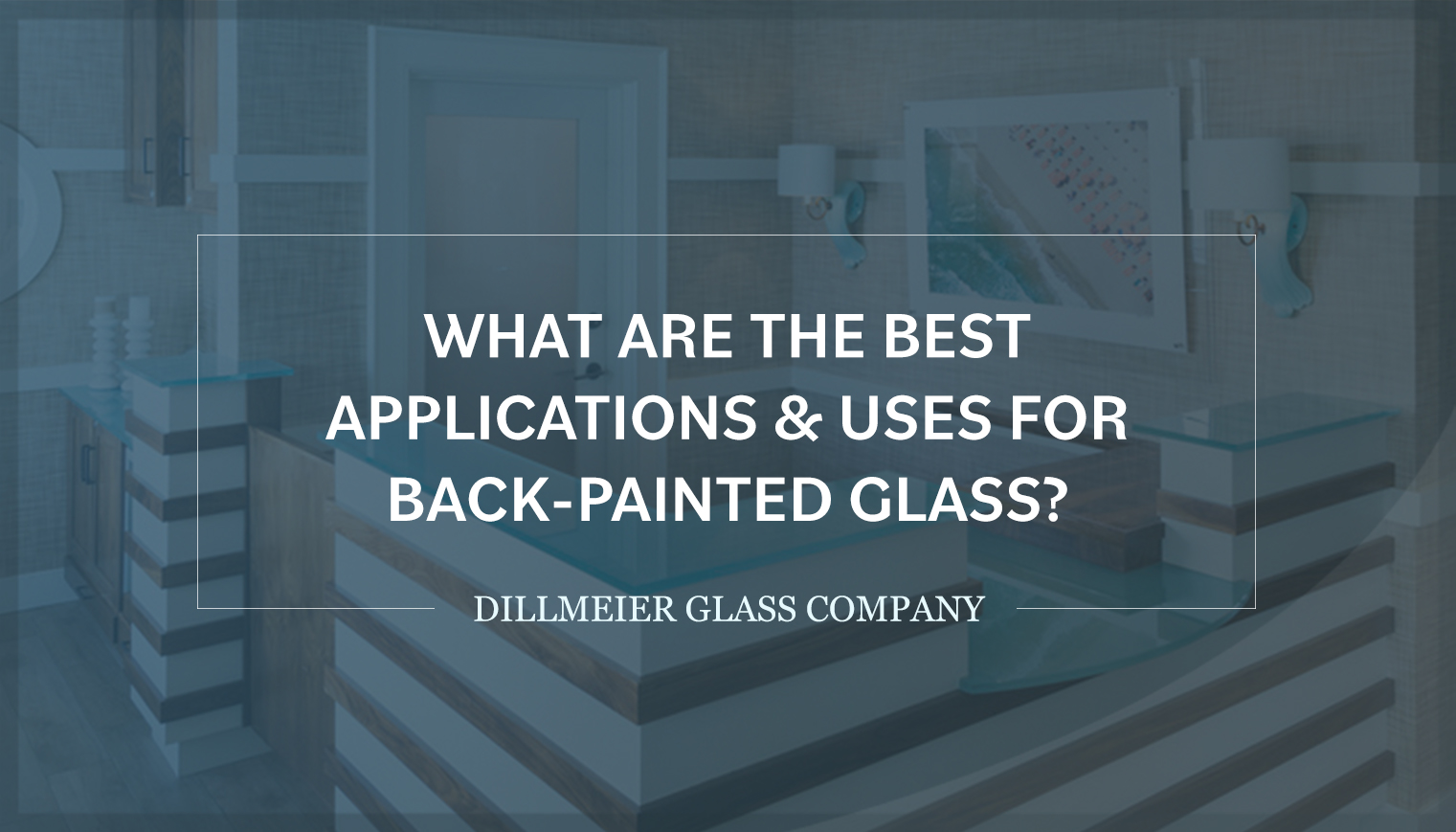
Whether adding subtle hues or all-encompassing color schemes, back-painting can elevate the aesthetics and style of any commercial space.
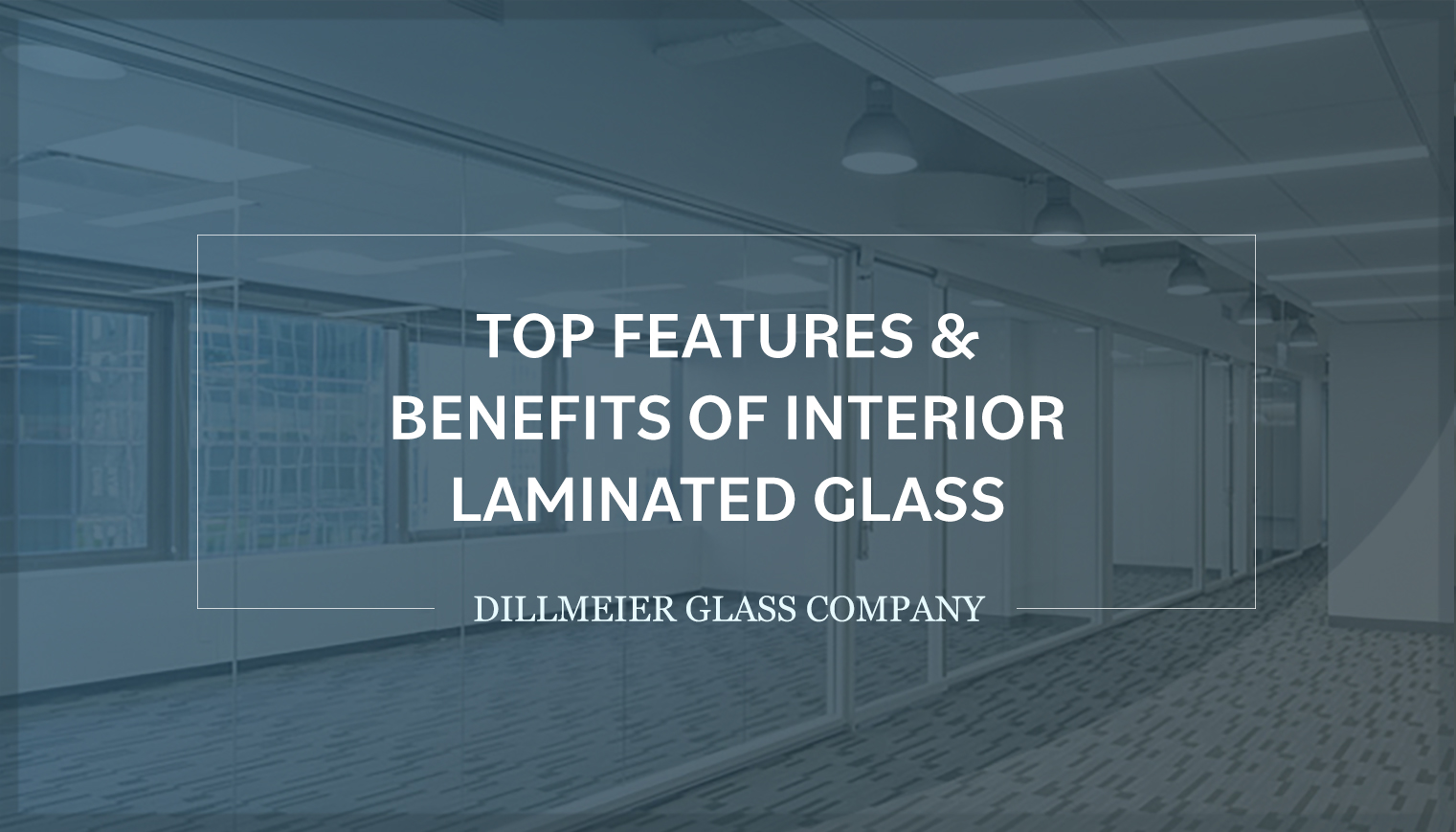
Whether seeking a stylish and decorative aesthetic or enhanced safety and security, laminated glass features many advantages that can elevate any interior space.
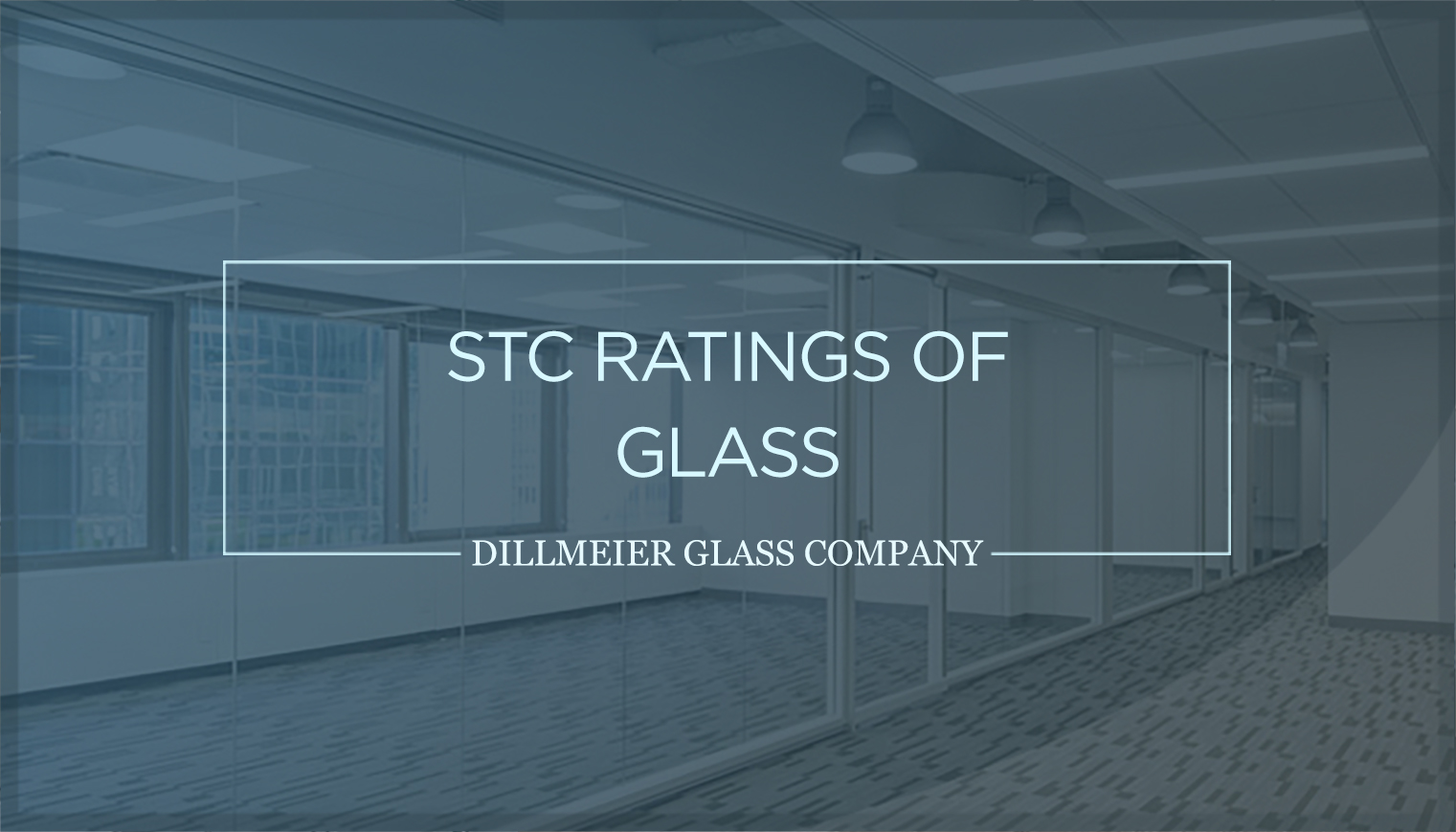
Editor’s Note: This blog post was originally published in February 2019 and has been revised to reflect industry updates.
Sound Transmission Class (STC) ratings for glass range from low to almost soundproof. While glass alone is simply a faint noise insulator, additional fabrication processes can be implemented to improve performance and noise reduction, such as lamination, double-glazing, or a combination of the two.